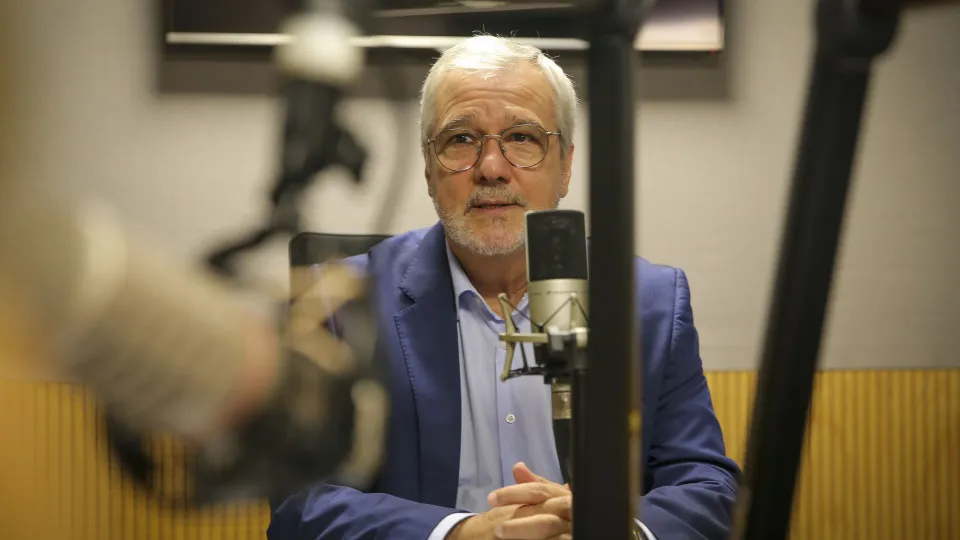
The UGT will proceed with a general strike on December 11, as confirmed by the secretary-general of the trade union center, Mário Mourão, following a meeting with Luís Montenegro and the Minister of Labor at São Bento.
“The general strike will go ahead, and therefore, the work being done concerning the strike will continue by our unions,” he assured reporters at the end of the meeting. “One issue does not imply the other: the strike will continue, and so will the availability for negotiation.”
Nonetheless, according to the secretary-general of the General Union of Workers, “this meeting was very constructive” and may “open doors to strengthen dialogue and collective negotiation.”
“We were not negotiating any measure; we talked about measures, discussed various issues, but were not negotiating because this meeting was not for negotiation,” clarified Mário Mourão, acknowledging that the meeting with the Prime Minister helped to “ease” the “tense environment” surrounding the changes to labor law.
“When I say it was a very constructive meeting, I also mean it was important to ease the tense atmosphere in the negotiations, and we hope that remains the case,” he added when asked about the intransigence shown so far by the Minister of Labor.
Asked whether there is still room to suspend the strike, UGT indicates that “there are not many conditions to suspend or cancel the strike,” especially since “only the bodies that approved this strike can call it off, and that takes time.”
Mário Mourão recalled that the labor reform draft has “more than 100 articles, many of which are very sensitive and have an impact on workers,” and therefore “the essential thing was to see if the parties were willing to continue working.”
“Without any red lines,” he continued, “there is a conducive environment to continue negotiations to reach a good result.”
Despite “the time not being favorable,” he recognized there is “a path to follow” and did not rule out the possibility of reaching an agreement between the UGT and the Government on labor matters.
If an agreement is reached, “it cannot be done hastily,” and for now, the general strike scheduled for December 11 will indeed proceed.
“We left the meeting very confident that this meeting was important to resume dialogue—a dialogue, discussion, and serious and loyal negotiation,” he stated. “One of the conclusions of this meeting for UGT is that, on the part of the Government, there is willingness and availability to continue working on this.”
Last week, it was disclosed that Luís Montenegro would meet UGT on Wednesday as a “signal of truce before the next social concertation meeting, despite the bilateral negotiations not having allowed any rapprochement” between the Government and the trade union center.
According to Mário Mourão, the upcoming working meetings on labor reform will take place at the Ministry of Labor since “that’s where they started.”
“We don’t have any date yet,” he added.
The secretary-general of UGT, who participated in the meeting accompanied by the union center’s president, Lucinda Dâmaso, also revealed that the social concertation meeting initially planned for December 10, the day before the general strike, was subsequently canceled by the Minister of Labor.
Following the strike announcement, the Ministry of Labor presented UGT with a new proposal, with some changes to the draft presented in July, which the trade union center says is “very little” to call off the strike.
The document sees the Government conceding on matters such as simplifying dismissals in medium-sized companies, reducing the number of mandatory training hours in micro-enterprises, opening the door to restoring the three days of leave related to attendance abolished during the ‘troika’, among others, but maintains some measures heavily criticized by union centers, like the return of individual working hours bank or the repeal of the rule providing for restrictions on ‘outsourcing’ in the event of dismissal.
The report quoted sources close to the Prime Minister, indicating that the audience request reached Montenegro’s office on November 7, coinciding with the general strike announcement for December 11. The Government’s objective is to “seek an agreement, even after the strike,” signaling to the trade union center that it elevates “the talks to a higher level.”
The CGTP and UGT decided to call a general strike for December 11 in response to the Government’s labor reform bill draft.
The strike convened by the two trade union centers arises in reaction to the Government’s proposed labor law reform, which includes extending the duration of fixed-term contracts, reintroducing individual working hours bank, ending the halt on external hiring after dismissals, revising parental leave, and strengthening mandatory minimum services during strikes, among other proposed changes.
This will be the first strike bringing together both trade union centers, CGTP and UGT, since June 2013, when Portugal was under the ‘troika’ intervention.
[Updated at 18h09]




